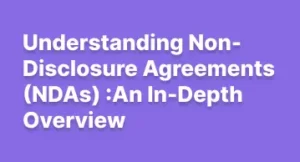Regulations on the legality and enforceability of Electronic Signatures: Australia
Which laws govern electronic signatures in Australia?
Electronic signatures are controlled by the Electronic Transactions Act of 1999 (Cth) (“ETA”) and its implementing rules, the Electronic Transactions Regulations 2000 (Cth), in Australia.
An individual State or Territory’s legislation (known as a Local ETA) may have exemptions or special conditions that differ from the standard, though typically follow the same guidelines, and must be observed when submitting documents to that jurisdiction’s authorities or associated agencies. The ETA defines the requirements for valid electronic signatures, consent, and document retention in Australian Commonwealth law. Such standards usually must be adhered to when dealing with government entities or participating in arrangements required by specific national legislation.
Under Australian law, electronic signatures are generally valid and enforceable, but some transactions or documents may not be permitted to be executed electronically or may not recognize electronic signatures.
Find out what qualifies as an electronic signature in Australia-
According to the ETA, an electronic signature is legal and enforceable if it meets the following three requirements (which also apply under each Local ETA):
- There is a method (e.g., the type of electronic signature) for identifying the signer and indicating that the signer intends to sign;
- It is reliable and appropriate for the communication, or it is proven that the person has been identified and their intentions are understood;
- Consent can either be expressed or inferred from the circumstances by the signer.
What are the documents that may be signed electronically?
Transaction types that generally can be signed with an electronic signature include:
- HR
- Procurement
- NDAs (provided it is an agreement, not a deed)
- Software licensing
- Healthcare
- Insurance
- Education
- Life Sciences
- Technology sector; and
- Record-keeping requirements vary depending on where the documents are to be kept. The ETA and Local ETA both prescribe specific record-keeping requirements).
It is not prohibited to use electronic signatures for the following types of transactions, but a party should exercise caution before doing so:
- Corporate Resolutions
- Banking
- Lending
- Chattel Paper
- Consumer Transactions
- Government Filings
- Real Estate; and
- Documents to be Notarized
Are electronic signatures prohibited for any transactions?
You cannot use electronic records or signatures for the following:
- Documents that require witnessing
- Electronic deeds (except in Victoria, NSW, and Queensland, where the legislation now contemplates them)
- Wills
- Power of Attorney
- Where applicable, court documents are filed electronically (courts have their system for this)
- Documents that need to be personally served.
Is consent required for electronic signatures in Australia?
Unless otherwise required by law, the person must consent to the method being used, which can be inferred from conduct or expressed in an express statement. Some transactions require formal consent procedures. For example, consumer loans regulated by the National Credit Code (“NCC”) require formal consent.
What factors led to the enforcement of digital signatures in Australia?
According to the ETA and ETR (or Local ETA), electronic signatures are enforceable and admissible if they meet certain conditions prescribed by those laws and specified above. If the authenticity or integrity of the electronic signature is challenged, however, the party seeking to enforce the electronic signature may need to provide additional evidence to prove its validity.
*Disclaimer : This page is intended to provide general information without any risks associated with legal advice. Though this page may contain some general legal information, it should not be used as an alternative for legal advice in your jurisdiction. You should always consult with an attorney or other professional before making any decisions on your own. MSB Docs provides this material “as-is,” and they disclaim any responsibility regarding its use. MSB Docs makes no representation or warranty of any kind, including guarantees or warranties of merchantability, fitness for a particular purpose, or accuracy of this material.





